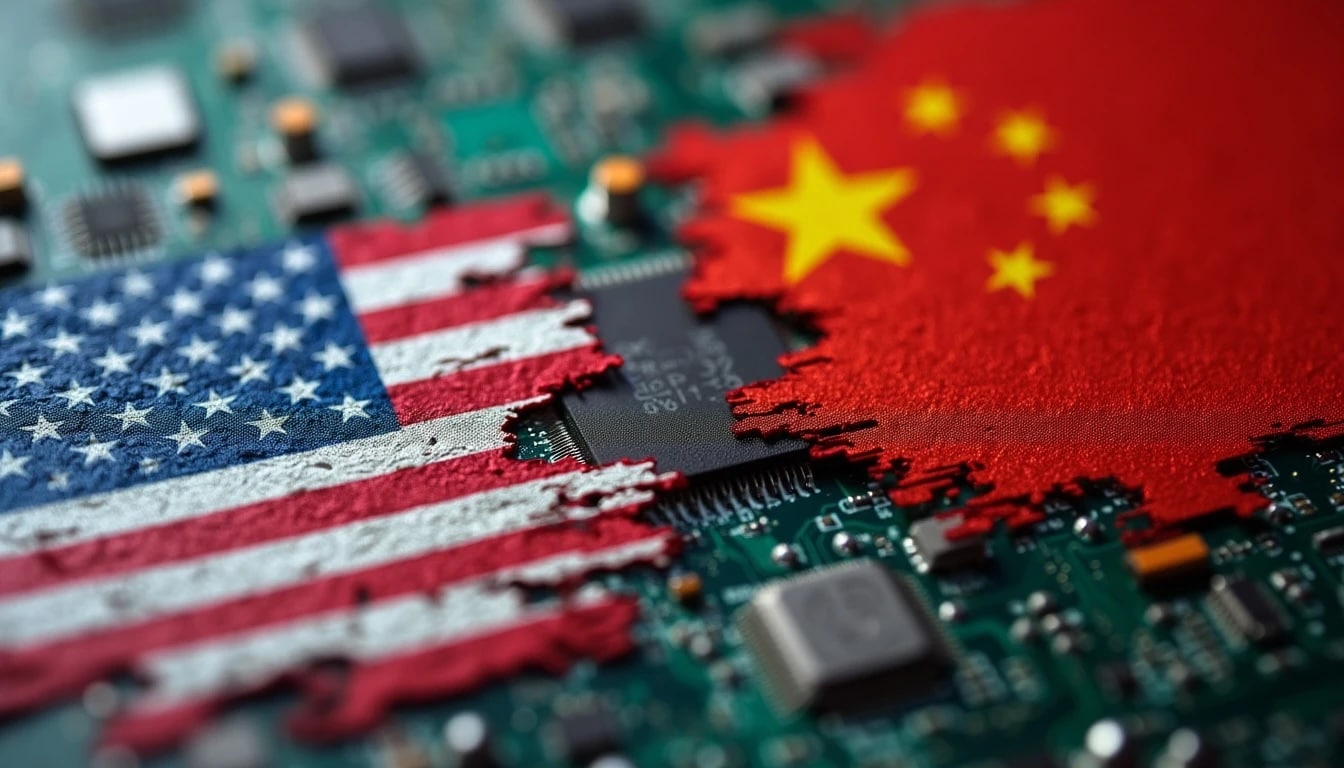The White House has once again blocked NVIDIA’s options to re-enter the Chinese market with its most advanced AI chips. In an interview on 60 Minutes and statements to journalists, President Donald Trump declared that The Blackwell chips “will not be handed over to other countries” and that only U.S. companies will have access to the company’s “top” models. He did suggest the possibility of cut-down versions for certain markets, without providing specific timelines or specifications.
The stance tightens the existing export controls and maintains the specific blockage targeting China, despite industry efforts to relax sales of “conformed” accelerators (less powerful) following previous bans on A/H-series chips. The message comes just after NVIDIA announced the shipment of over 260,000 Blackwell chips to South Korea, highlighting a strategy to prioritize allies for scaling AI infrastructure.
What Changes with the “No” to Blackwell for China
- Red line for the most advanced chips. The Blackwell high-end chips are prohibited for China and, according to Trump, also for other countries, while it’s being evaluated whether censored derivatives will be available for non-U.S. markets.
- Room for “compliant” variants. NVIDIA has adjusted designs (such as the H20) to try to meet performance/bandwidth limits, but their approval and commercial deployment are still uncertain. Recent months saw the company considering relaunching H20 for China with licenses, yet it also encountered additional Chinese import controls.
- Prioritizing allies. While the Chinese channel remains blocked, Seoul will receive >260,000 Blackwell chips for government and large conglomerates (Samsung, SK, Hyundai, Naver/Kakao), solidifying South Korea’s role as a regional AI hub.
Impact on NVIDIA (and the AI landscape)
- “Lost opportunity” revenue. Jensen Huang himself has admitted that China now contributes “zero” in cutting-edge chips, and any reopening would be considered a “bonus”. The prolonged shutdown means missing out on tens of billions in potential demand and shifting growth toward the U.S., Europe, and allied Asian countries.
- Pressure for Chinese alternatives. Without Blackwell, Beijing will ramp up local silicon production (Ascend, Biren, etc.) and software optimizations to maximize legacy hardware. In the short term, the cost/latency of leading-edge models in China will lag behind those accessed via NVIDIA’s latest offerings.
- Ongoing regulatory tension. The political signals reduce the likelihood of “special editions” and make it more probable that any “China-only” chips will face reviews or stops if perceived as too capable.
Can a Censored Version Be Sold?
Trump did not close the door to China accessing less advanced versions (“We’ll let them work with NVIDIA, but not with the most cutting-edge.”). Recent experience suggests that each technical adjustment triggers a new round of scrutiny: Washington monitors that Censored ≠ Evasion of the norm, and China has tightened inspections on “conformed” products. The operational conclusion for Chinese clients is that, even with variants, the supply risk remains high.
Why South Korea Yes (and China No)
The apparent coherence: Strengthening allied ecosystems with Blackwell — as in South Korea — while constraining strategic competitors. The South Korean order of over 260,000 units targets supercomputing for smart factories, automotive, cloud computing, and AI-as-infrastructure, aligning with the country’s plans to lead the new wave of AI. For NVIDIA, these “macro orders” substitute part of the volume banned in China and provide visibility into revenue streams over the next 12–24 months.
Next Steps to Watch
- Regulatory details. How BIS (Commerce) turns the presidential “no” into licenses or more restricted lists, and how “the most advanced” is defined.
- Variant roadmap. What SKU NVIDIA proposes for China (if any), its timeline, and Beijing’s response (import controls, public procurement).
- Demand shifts. Trends in large-scale contracts in South Korea, Japan, Europe, and the Middle East as substitutes for Chinese business.
- Domestic Chinese competition. Speed of Huawei/Ascend and others in real-world training/inference performance and software ecosystem.

